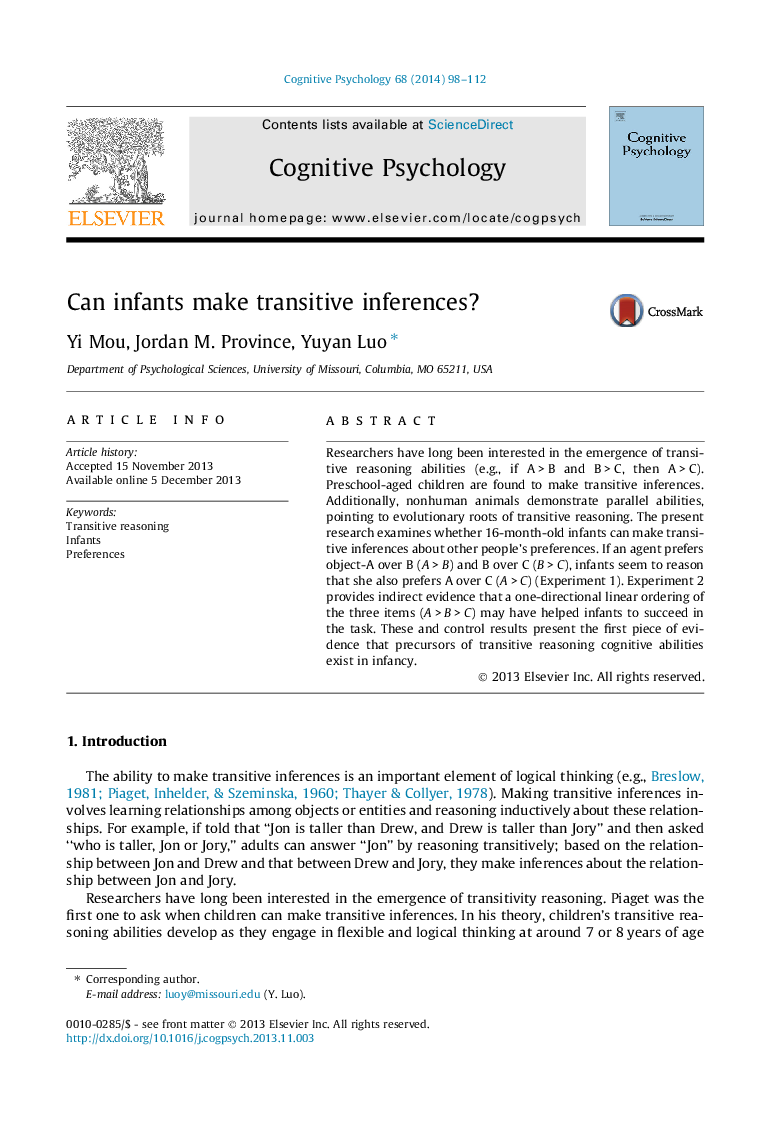| کد مقاله | کد نشریه | سال انتشار | مقاله انگلیسی | نسخه تمام متن |
|---|---|---|---|---|
| 916878 | 1473396 | 2014 | 15 صفحه PDF | دانلود رایگان |
• Making transitive inferences is an important element of logical thinking.
• Sixteen-month-old infants seem to make transitive inferences about others’ preferences.
• This suggests early emergence of the transitivity reasoning abilities.
Researchers have long been interested in the emergence of transitive reasoning abilities (e.g., if A > B and B > C, then A > C). Preschool-aged children are found to make transitive inferences. Additionally, nonhuman animals demonstrate parallel abilities, pointing to evolutionary roots of transitive reasoning. The present research examines whether 16-month-old infants can make transitive inferences about other people’s preferences. If an agent prefers object-A over B (A > B) and B over C (B > C), infants seem to reason that she also prefers A over C (A > C) (Experiment 1). Experiment 2 provides indirect evidence that a one-directional linear ordering of the three items (A > B > C) may have helped infants to succeed in the task. These and control results present the first piece of evidence that precursors of transitive reasoning cognitive abilities exist in infancy.
Journal: Cognitive Psychology - Volume 68, February 2014, Pages 98–112
